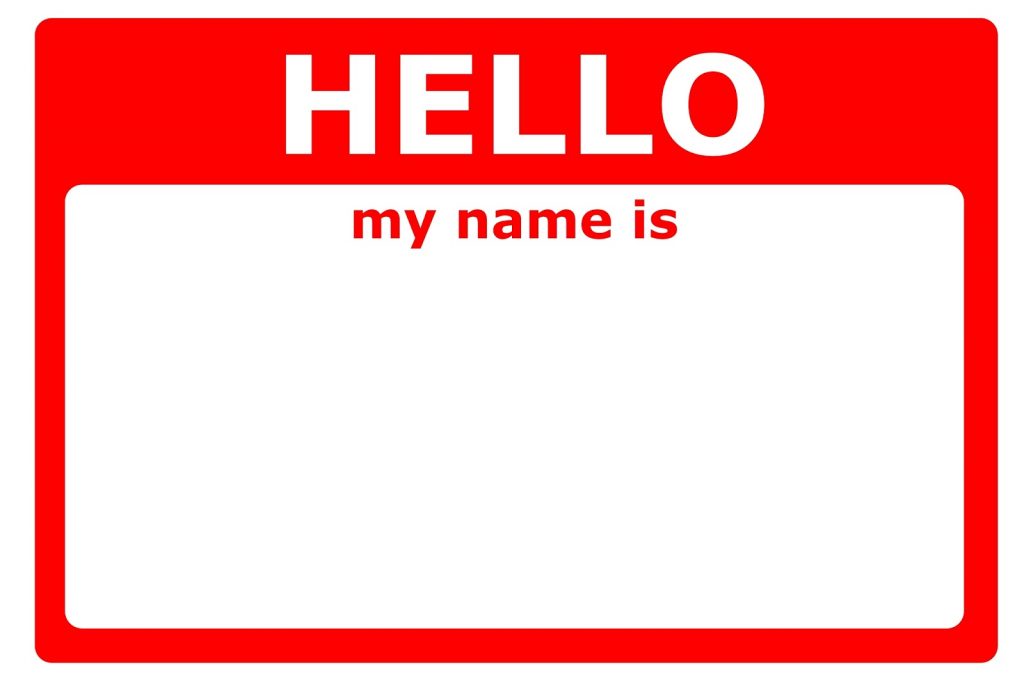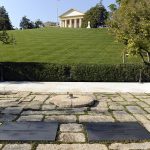Never Change Your Name
My earliest memory of church is a loud, disembodied voice invading my sheltered space in the pew. Looking up from my grandmother’s lap, I could divine the source: a blur of snow-white hair and waving arms belonging to the Reverend John Maxwell, pastor of Collins Memorial Methodist Church. Now and then he would smack his hands in front of the microphone, making thunder that woke up the men in the choir.
In my family, church was always prelude to a big Sunday dinner. On one such afternoon when I was four years old, I asked my grandfather to lift me to the top of the picnic table in the back yard. They say I proceeded to give him a dead-on imitation of Preacher Maxwell, including the characteristic gestures. After he lifted me down, I said, “Now granddaddy, you ought to be a better boy from that.” He was so tickled with my sermon that he dubbed me “King David” that day.
I felt proud of my association with Hebrew royalty. It nurtured in me a kind of reverence for my name. Miss Annie Maude Harkins, my Sunday School teacher, told me my first name meant “beloved.” It sounded like love when she said it.
My last name inspired creativity among my grammar school classmates: changing the “d” to a “p” or adding a “y” at the end. In high school the cheerleaders sang “Duke of Earl,” hoping to induce the basketball coach to put me in the game. “David Duke” told me who I was. It carried the love of my parents and the affection of my friends. It assured me of my place in the world.
But the year I turned 23, my name changed forever. The Imperial Wizard of the Ku Klux Klan decided to run for the Louisiana state legislature – and DAVID DUKE appeared in two-inch type on front pages all over the country.
To this day, I almost never meet someone without “David Duke” standing between us. That first moment of contact is clouded by impressions and projections that have nothing to do with me. For years, I felt embarrassed to say my name to anyone I didn’t know. And then, at age 46, another Methodist preacher crossed my path of life.
I was asked to do an interview with Walter Kimbrough, a prominent minister who grew up in Atlanta, as I did – but on the “other” side of town. Dr. Kimbrough was raised in the African American community of Summer Hill by his grandmother, “our theologian in residence,” as he told me. “She taught me I was a person of sacred worth, “he said. “She taught that so well, I held it inside through all my growing up. I didn’t know my neighborhood was a ghetto until I studied urban sociology.”
Jim Crow was in force then – and when Walter Kimbrough ventured outside his community, he encountered something radically different from Granny’s theology. White people he met – even courteous, open people – never saw just Walter. The first impression he gave was never completely his own.
But Walter Kimbrough stayed strong in his spirit. He built the most successful vocation a person can have: a life of service. He made himself respected on every side of town.
Dr. Kimbrough shared that life with me in our interview: a rare and intimate gift for one human being to give another. Afterward, we stood up to shake hands. He gripped mine firmly – and to my surprise, held onto it. He put his other hand on my shoulder.
“Brother Duke,” he said, “never change your name.”
All Walter Kimbrough knew of me came from 45 minutes of conversation – and my name. But he read my heart that day. He understood that my name colored not only the way people perceived me: It colored the way I saw myself.
“Be proud of the strong and beautiful name your parents gave you,” he told me. “It’s a royal name, did you know?
“In Hebrew, it means ‘beloved.'”





No Comments